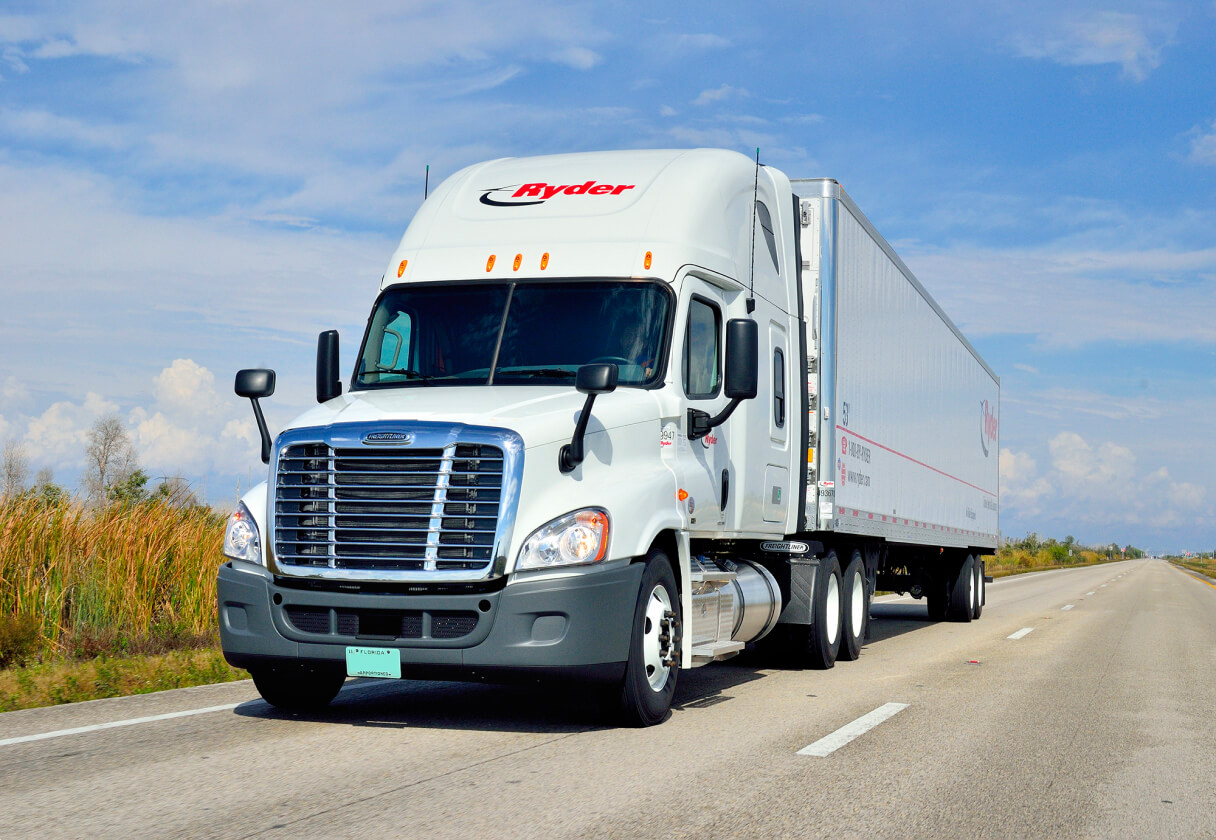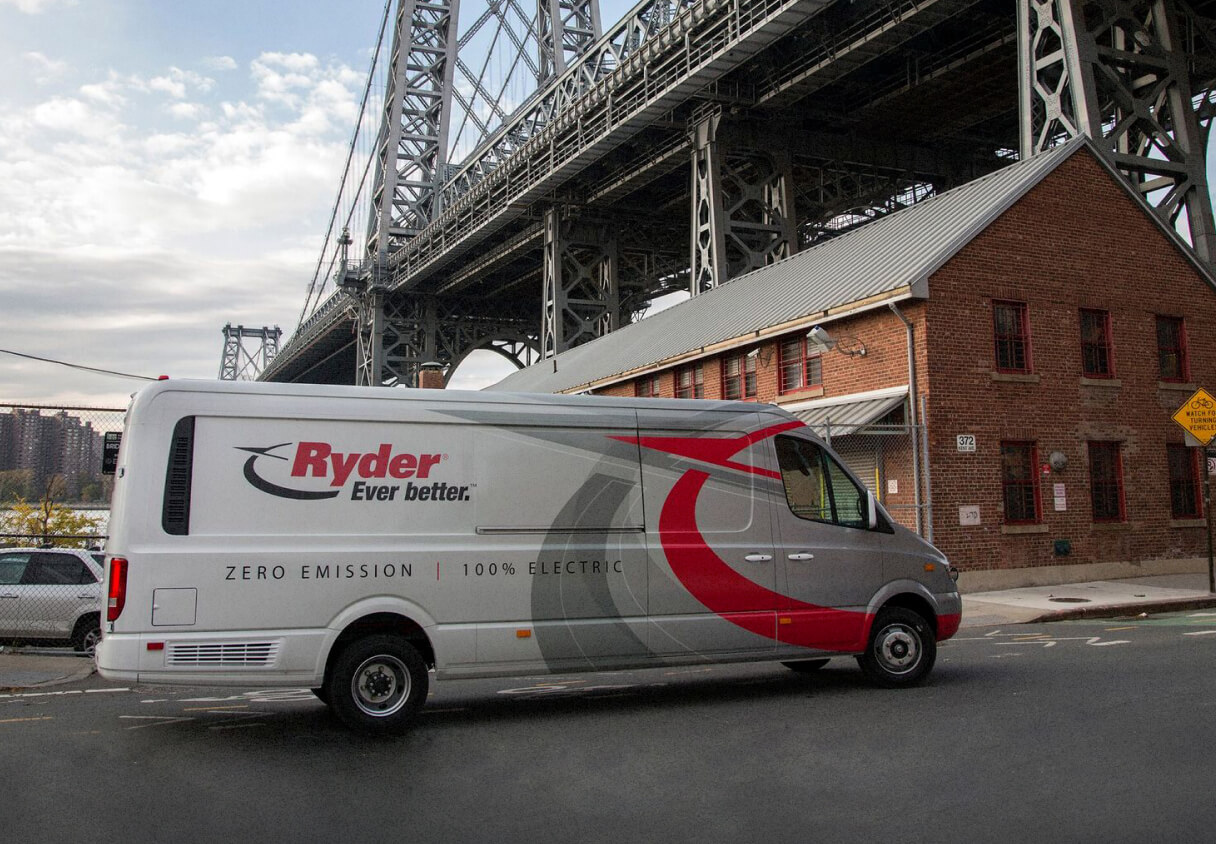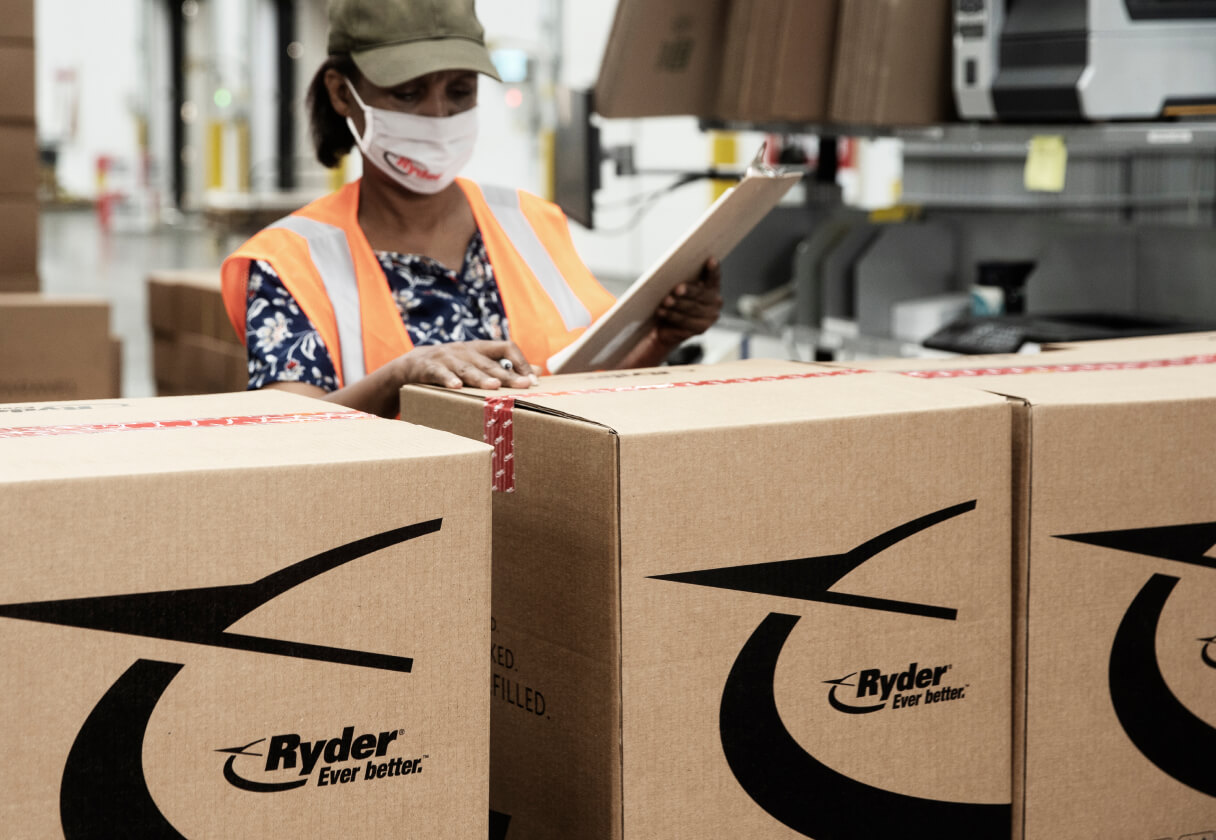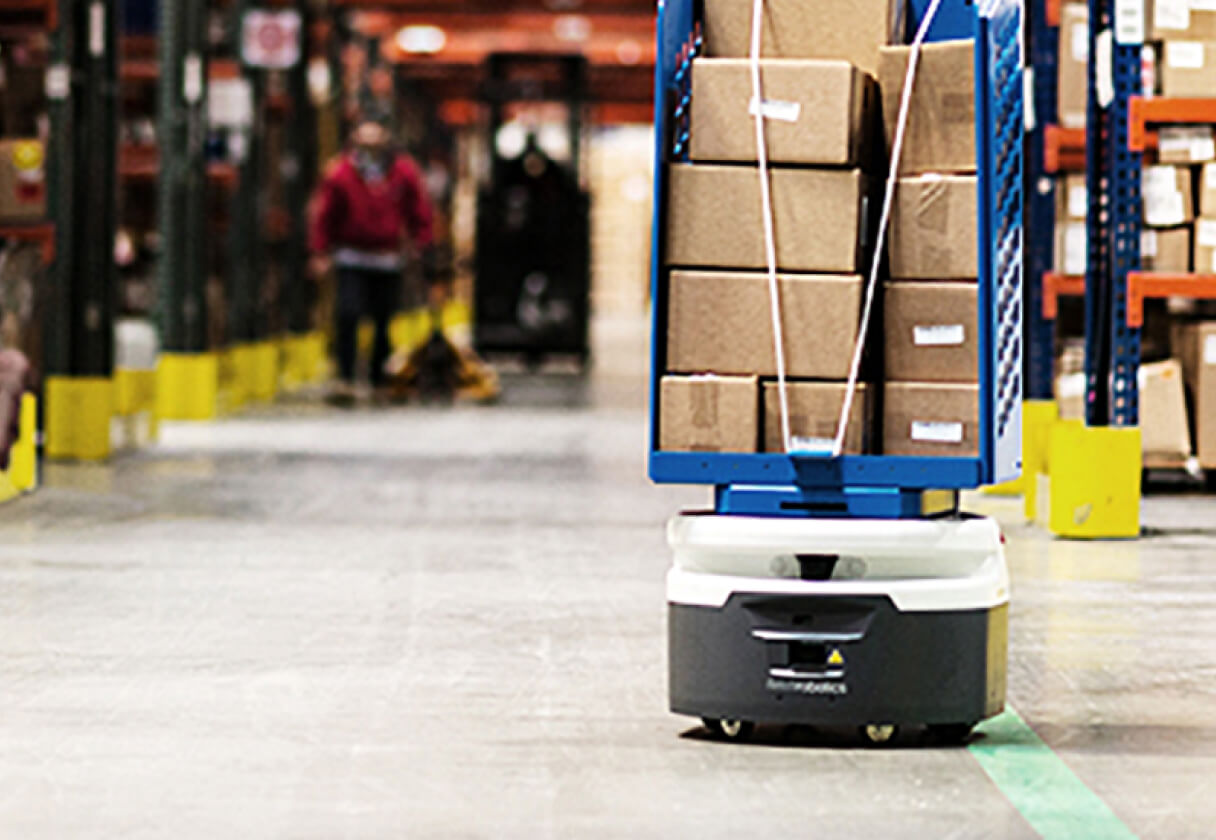In today’s rapidly changing world, we strive to safeguard our environment and its resources through continuous innovation of our services, technology, and operations. Protecting our planet is both the right thing to do and an increasing expectation of our customers and other stakeholders. The foresight and expertise we provide is essential to driving long-term partnerships with our customers, while decreasing environmental impacts, and positioning Ryder for a bright future.
DRIVING DOWN OUR FOOTPRINT
Ryder’s logistics and transportation services require fuel, electricity, water, facilities, and equipment to support our extensive network. We manage these resources carefully and partner with our customers to minimize potential risks to the environment from our business, particularly by limiting consumption, performing effective waste management, and reducing emissions that contribute to climate change.
Learn More
LEVERAGING TECHNOLOGY TO DRIVE VALUE
Ryder’s unique expertise in advanced vehicle technology, alternative fuel and low-carbon diesel options, and fleet optimization allows us to provide our customers with the tools needed to operate effectively in a changing world.
Learn More
PROVIDING STRATEGIC SOLUTIONS
At Ryder, we view every potential action through the prism of serving our customers and enabling them to deliver on their promises to their own customers. Each day, we ask ourselves how we can make a customer’s transportation or supply chain network more efficient, more effective, and safer.
Learn More
INVESTING IN NEW CAPABILITIES
Our customer-focus approach enables Ryder to evaluate early-stage innovative technologies to advise our customers about their value and stay at the market forefront. We have strong history in leveraging emerging technologies that help make our business and, ultimately, our customers’ businesses more efficient and competitive.
Learn More
